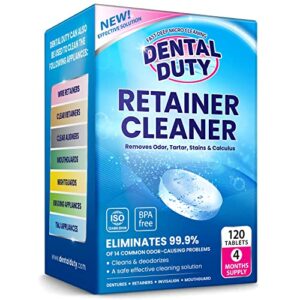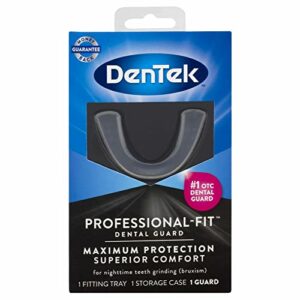In this step-by-step guide, we will provide you with all the necessary information on how to care for your dentures. Taking care of your dentures is crucial for maintaining their functionality and ensuring their longevity. We will walk you through the process of daily cleaning, proper storage, and handling of your dentures. Additionally, we will provide you with some useful tips on how to prevent damage and maintain good oral hygiene. By following this guide, you will be able to keep your dentures in excellent condition and ensure a comfortable and healthy experience.
Protecting Smiles: Top Dental Reads
Cleaning Dentures Daily
To clean dentures daily, follow these simple steps:
- Remove your dentures from your mouth.
- Rinse them thoroughly with warm water to remove any loose debris.
- Take a soft-bristle toothbrush and denture cleaner.
- Brush all surfaces of the dentures gently but thoroughly.
- Rinse the dentures again, ensuring that all the cleaner is removed.
- Finally, place the dentures back in your mouth.
Remember, it’s important to clean your dentures daily to keep them fresh and free from any buildup.
Soaking Dentures Overnight
To properly soak your dentures overnight, follow these steps:
- Fill a container with a denture cleaning solution or create a mixture of water and vinegar or baking soda.
- Example: Mix 1 cup of water with 1 tablespoon of vinegar or baking soda.
- Place your dentures into the solution, making sure they are fully submerged.
- Leave your dentures to soak overnight, allowing the cleaning solution to remove stains, bacteria, and any remaining debris.
- In the morning, take your dentures out of the solution and rinse them thoroughly with water.
- Ensure that all traces of the cleaning solution are removed before wearing the dentures again.
By following these instructions, you can effectively clean and maintain your dentures, ensuring they are fresh and ready to be worn the next day.
Handling Dentures with Care
When removing or inserting your dentures, always make sure to do it over a basin filled with water or a towel. This will prevent any damage if they accidentally fall. Additionally, it’s important to avoid using hot water or abrasive cleaners that can harm the dentures. Stick to these simple steps to ensure the longevity and care of your dentures.
Brushing Natural Teeth and Gums
To brush your natural teeth, gums, and tongue effectively, follow these steps twice a day using a soft-bristled toothbrush:
- Wet the toothbrush with water and apply a pea-sized amount of toothpaste.
- Hold the toothbrush at a 45-degree angle against your teeth and gums.
- Gently brush in small circular motions, ensuring you cover all surfaces of your teeth and gums.
- Pay extra attention to hard-to-reach areas, such as the back teeth and along the gumline.
- After brushing your teeth, move the toothbrush to your tongue and brush gently from back to front to remove any bacteria or debris.
- Rinse your mouth thoroughly with water, ensuring you remove all toothpaste residue.
- Finally, clean your toothbrush under running water and store it in an upright position to air dry.
By following these simple steps, you can maintain your oral health and prevent plaque buildup on your remaining teeth. Remember to replace your toothbrush every three to four months or sooner if the bristles become frayed.
Cleaning Denture Adhesive Residue
To remove residual denture adhesive, start by taking a soft-bristled brush and gently brush your gums, palate, and tongue. Use circular motions and be careful not to apply too much pressure. After brushing, rinse your mouth thoroughly with water to ensure all the adhesive is removed. For example, you can brush your gums by starting at the top and working your way down, making sure to cover all areas. Then, move on to brushing your palate, using gentle strokes from front to back. Finally, brush your tongue by starting at the back and moving forward, covering the entire surface. Rinse your mouth by swishing water around for a few seconds before spitting it out. Repeat these steps until all residue is gone.
Regular Dental Check-ups
Visit your dentist regularly for check-ups and professional denture cleaning. Regular dental check-ups are important to maintain good oral health and ensure the proper fit and function of your dentures. During these visits, your dentist will thoroughly examine your dentures and oral tissues, identifying any issues and providing necessary recommendations for treatment or adjustments. Taking the time to schedule and attend these appointments will help to prevent potential problems and keep your smile healthy and comfortable.
Avoiding Damaging Habits
To avoid damaging your dentures, avoid chewing hard or sticky foods. These types of foods can put excessive pressure on your dentures and cause them to crack or break. Additionally, refrain from using your dentures as tools to open packages or bottles, as this can also lead to damage or warping.
Storing Dentures Properly
To properly store your dentures when not wearing them, keep them in a denture soaking solution or water. This will prevent them from drying out and losing their shape. Make sure to always keep them moist to maintain their proper fit and function.
Replacing Worn-out Dentures
Monitor your dentures regularly for any signs of wear or damage. If you notice that your dentures have become loose, cracked, or uncomfortable, it is important to consult your dentist without delay. They will be able to assess the condition of your dentures and recommend either an adjustment or a replacement, ensuring that you can continue to have a comfortable and functioning set of dentures.
Final thoughts on denture care
In conclusion, caring for dentures is vital for both our oral health and the longevity of our dentures. By following the steps outlined in this guide, we can ensure that our dentures remain clean, comfortable, and functional. Regular brushing, soaking, and avoiding harmful habits such as biting on hard objects are simple yet effective ways to maintain our dentures. Additionally, it is crucial to schedule regular check-ups with our dentists to address any potential issues promptly. With proper care, our dentures can continue to serve us well and contribute to our overall well-being. Remember, a little extra care goes a long way in preserving our beautiful smiles.
Keeping your smile bright
Step-by-Step Guide to Maintain Optimal Dental Health
- Start by brushing your teeth at least twice a day using a soft-bristled toothbrush and fluoride toothpaste. Brushing should include all surfaces of your teeth and your tongue
- Floss your teeth daily to remove plaque and food particles from between the teeth and under the gumline
- Limit your intake of sugary foods and drinks, as they can contribute to tooth decay. Opt for healthier alternatives such as fruits and vegetables
- Visit your dentist regularly for check-ups and professional cleanings. This will help identify any potential dental issues early on and prevent them from becoming more serious
- Educate yourself about proper oral hygiene techniques and dental health practices. Stay informed about the importance of dental health and how it can impact your overall well-being
Frequently Asked Questions about Dental Health Awareness
Can stress and anxiety affect dental health?
Yes, stress and anxiety can indeed have an impact on dental health. When we experience high levels of stress or anxiety, our bodies can respond in different ways, and our oral health may be affected as well.
One common effect of stress and anxiety is teeth grinding or clenching, also known as bruxism. This habit can occur both during the day and while we sleep, often unknowingly. Over time, bruxism can lead to worn-down teeth, jaw pain, and even headaches.
Additionally, stress and anxiety can affect our oral hygiene habits. When we are stressed or overwhelmed, we may neglect or forget to take proper care of our teeth and gums. This can result in poor oral hygiene, which increases the risk of tooth decay, gum disease, and other dental problems.
Furthermore, stress can weaken our immune system, making it harder for our bodies to fight off infections, including oral infections. This can lead to the development of conditions such as oral thrush or canker sores, which can be painful and uncomfortable.
It’s important to recognize the potential impact of stress and anxiety on our dental health and take steps to manage them effectively. Engaging in stress-reducing activities such as exercise, meditation, or talking to a professional can be beneficial. Additionally, maintaining a consistent oral hygiene routine, including brushing twice a day, flossing, and visiting the dentist regularly, can help minimize the impact of stress on our dental health.
What are the common dental health problems that people face?
There are several common dental health problems that many people face. One of the most prevalent issues is tooth decay, also known as dental caries. This occurs when bacteria in the mouth produce acids that erode the tooth enamel, leading to cavities.
Gum disease, or periodontal disease, is another common dental problem. It is caused by the buildup of plaque and tartar along the gumline, which can eventually lead to inflammation, bleeding gums, and even tooth loss if left untreated.
Tooth sensitivity is a widespread issue, where individuals experience discomfort or pain when consuming hot or cold foods and drinks. This sensitivity often arises from exposed tooth roots, tooth decay, or worn enamel.
Another problem that many people face is bad breath, also known as halitosis. It can be caused by poor oral hygiene, gum disease, dry mouth, or certain foods. It can be quite embarrassing and affect one’s self-confidence.
Furthermore, teeth grinding, or bruxism, is a dental health concern that many individuals experience, especially during sleep. This can result in worn-down teeth, jaw pain, headaches, and even cracked or fractured teeth.
Lastly, misaligned or crooked teeth, known as malocclusion, can impact a person’s dental health. It can make proper oral hygiene more challenging and increase the risk of gum disease and tooth decay.
It’s important to note that these are general dental health problems, and each person’s situation can vary. Regular dental check-ups and good oral hygiene practices are essential in preventing and addressing these issues. If you are experiencing any dental problems, we recommend consulting with a dental professional for proper evaluation and treatment.














